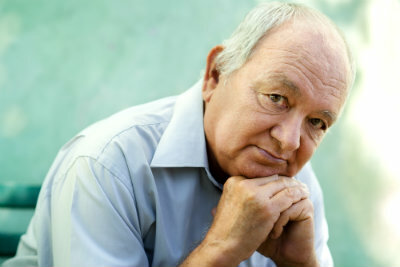Depression in Older Adults


Depression in Older Adults
While the holiday season is a festive time, it can also bring sadness for those that may be alone or missing loved ones. For many, this sadness is situational, brought about by the holidays. For others, it could be much more. Michael Fresé, Ph.D., is a clinical psychologist specializing in geropsychology. He recently sat down with e-Connections to talk about the signs and symptoms of depression among seniors.

Do you feel down and depressed, more days than not? Have you lost interest and pleasure in activities you once enjoyed? Are you experiencing difficulty with your appetite, energy level, sleeping? Have you been feeling helpless, hopeless, or very tired?
If you can answer yes to some of those questions, you might be depressed.
As we age, we often experience the many changes associated with later life – death of loved ones, worsening medical issues, retirement – and depression can creep in like a thief in the night. It can happen when we least expect it and we may not even notice it. Often times, it is our family members and friends who recognize the change in our mood. Depression, however, doesn’t only affect mood - it can impact our appetite, concentration, energy level, memory, physical health, and sleep.
As the symptoms of depression vary from person to person, there are several red flags to be aware of:
- Sadness
- Sleep disturbances (insomnia, hypersomnia)
- Fatigue
- Feelings of worthlessness, self-loathing, worry about being a burden
- Losing interest or pleasure in activities that you once enjoyed and looked forward to
- Isolation and social withdrawal (not returning phone calls, reluctance to have visitors)
- Loss of appetite and/or weight loss
- Fixation on death, suicidal thoughts or attempts
When asked, many depressed older adults deny feeling sad. Physical complaints such as increased arthritic pain, gastrointestinal distress, or more pronounced back pain are often the symptoms of depression. If you suspect an older adult might be depressed yet they deny feeling sad or depressed, ask yourself if you have noticed any of the following symptoms:
- Anxiety and worries
- Difficulty concentrating
- Feelings of helplessness and hopelessness
- Irritability
- Lack of motivation and energy
- Loss of interest in socializing and participating in activities/hobbies
- Memory difficulties
- Neglecting personal care (forgetting medications, neglecting personal hygiene, skipping meals)
- Slowed movement and speech
- Unexplained aches and pains
While depression is a common problem in older adults, it is often overlooked or not taken seriously. People might believe that they have good reason for feeling blue, or that being depressed is part of growing old. Social isolation, which can lead to depression, may result in few social contacts who would notice an individual’s distress. Often times, people don’t realize the relationship between physical pain and emotional pain. Further, people are often reluctant to talk about their feelings or ask for help.
There are many causes of depression in older adults, including (but not limited to): fears, health issues, isolation/loneliness, loss of identity/reduced sense of purpose, and recent bereavements. Several medical conditions can cause depression in older adults also, such as cancer, COPD, diabetes, lupus, heart disease, multiple sclerosis, Parkinson’s disease, stroke, thyroid disorders, and vitamin B12 deficiency.
If you or a loved one are depressed, the best thing to do is to address it- whether through exercise, social contact with others, or seeking help from a psychologist. The more active you are – mentally, physically, and socially- the better you will feel!